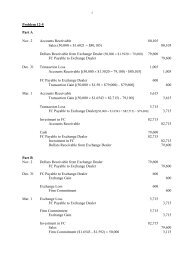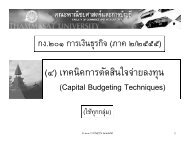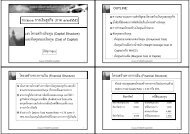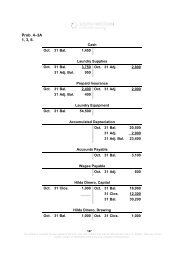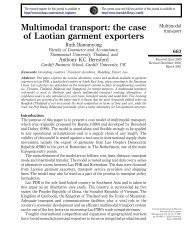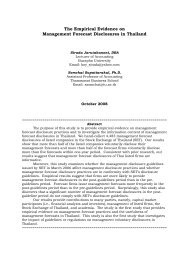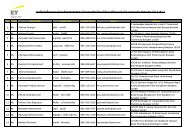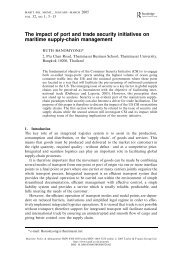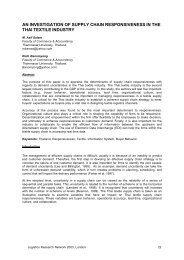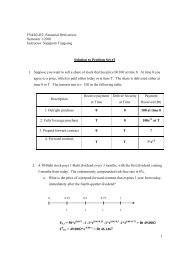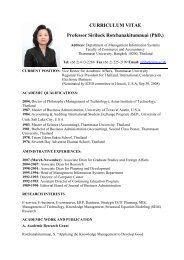Human capital and performance: A literature review
Human capital and performance: A literature review
Human capital and performance: A literature review
You also want an ePaper? Increase the reach of your titles
YUMPU automatically turns print PDFs into web optimized ePapers that Google loves.
‘The concept <strong>and</strong> perspective of human <strong>capital</strong> stem from the fact that there is no substitute<br />
for knowledge <strong>and</strong> learning, creativity <strong>and</strong> innovation, competencies <strong>and</strong> capabilities; <strong>and</strong> that<br />
they need to be relentlessly pursued <strong>and</strong> focused on the firm’s environmental context <strong>and</strong><br />
competitive logic’ (Rastogi, 2000: 196).<br />
Such a consideration leads to a crucial point: the accumulation of exceptionally talented<br />
individuals is not enough for the organisation. There must also be a desire on the part of<br />
individuals to invest their skills <strong>and</strong> expertise in the organisation <strong>and</strong> their position. In other<br />
words, individuals must commit or engage with the organisation if the effective utilisation of<br />
human <strong>capital</strong> is to happen. Additionally, regarding human <strong>capital</strong>, there must be social<br />
<strong>capital</strong> <strong>and</strong> organisational (or structural) <strong>capital</strong> surrounding the essential context. These three<br />
forms of <strong>capital</strong> contribute to the overall concept of intellectual <strong>capital</strong> (see Figure 1).<br />
Intellectual <strong>capital</strong><br />
The OECD (1999) defines intellectual <strong>capital</strong> as `the economic value of two categories on<br />
intangible assets of a company’ – organisational <strong>and</strong> human <strong>capital</strong>. Wright et al. (2001)<br />
argue that intellectual <strong>capital</strong> is a factor that includes human <strong>capital</strong>, social <strong>capital</strong> <strong>and</strong><br />
organisational <strong>capital</strong>. According to the research of Nahapiet & Ghoshal, intellectual <strong>capital</strong><br />
refers to the ‘knowledge <strong>and</strong> knowing capability of a social collectively, such as an<br />
organisation, intellectual community, or professional practice’ (1998: 245). There is a lack of<br />
clarity surrounding these <strong>and</strong> related terms, with numerous definitions abounding. In one<br />
study, Gratton & Ghoshal (2003) argue that intellectual <strong>capital</strong> is part of human <strong>capital</strong>, that<br />
is, human <strong>capital</strong> subsumes intellectual <strong>capital</strong>, <strong>and</strong> also includes within it social <strong>capital</strong> <strong>and</strong><br />
emotional <strong>capital</strong>. For most commentators (e.g., Kaplan & Norton, 1993; Harvey & Lusch,<br />
1999; Stewart, 1997; Sveiby, 1997), intellectual <strong>capital</strong> has nevertheless a broad sweep <strong>and</strong><br />
includes human <strong>capital</strong> as one of its key dimensions.<br />
Central to these ideas is that intellectual <strong>capital</strong> is ‘embedded in both people <strong>and</strong> systems.<br />
The stock of human <strong>capital</strong> consists of human (the knowledge skills <strong>and</strong> abilities of people)<br />
social (the valuable relationships among people) <strong>and</strong> organisational (the processes <strong>and</strong><br />
routines within the firm)’ (Wright et al., 2001: 716).<br />
<strong>Human</strong> <strong>capital</strong> <strong>and</strong> <strong>performance</strong> 5



